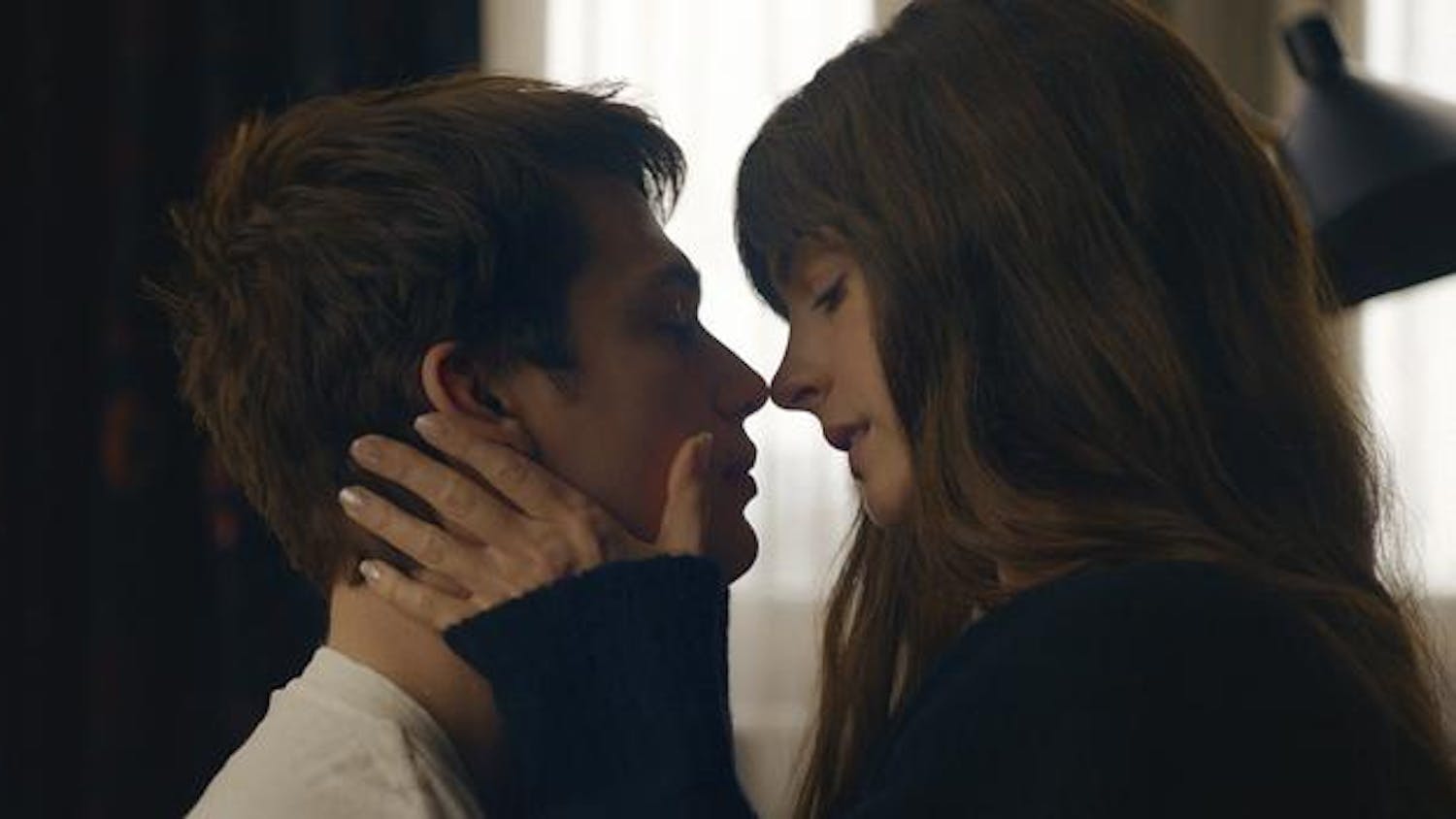There is no escaping your conscience, Detective Porfiry warns Raskolnikov, a man about to be charged with the robbery and murder of an old pawnbroker. Trapped in his own mind, Raskolnikov suffers the greatest penalty for his crimes — the guilt that stems from committing a seemingly senseless crime — in the Trinity Repertory Company’s production of Marilyn Campbell’s and Curt Columbus’s adaptation of “Crime and Punishment.”
In a decrepit, one-room apartment in St. Petersburg, former student Rodion Raskolnikov, played by Stephen Thorne, contemplates his crime. Poor, unemployed and without promise, Raskolnikov drives himself to the brink of insanity through the act of murder. This stage adaptation of Fyodor Dostoevsky’s classic novel brings to life his struggles with morality, God and motivation in the aftermath of his crime.
Detective Porfiry Petrovich, played by Dan Butler, both a friend and adversary to Raskolnikov, leads the investigation of the pawnbroker’s murder. His interrogations are the vehicle for intellectual dialogue between the two and concern the psychology of criminal motivation and the question of earthly and divine judgments.
Director Brian Mertes highlights the novel’s most provocative themes, emphasizing a moral debate in which the characters question whether murder and crime can ever be justified. Porfiry is enamored with Raskolnikov’s claim that all men are divided into two categories — ordinary and extraordinary. The latter, Raskolnikov claims, have the right to transgress the law in order to benefit humanity.
“Dostoevsky’s everyman, Raskolnikov, wants to succeed,” wrote Curt Columbus, the Richard L. Bready Artistic Director for Trinity Repertory and co-adaptor of the play, in a note to the audience. In the context of the global financial crisis, “Raskolnikov is all over our world right now, so his situation concerns us as much as ever.”
Trinity’s “Crime and Punishment” condenses Dostoevsky’s nearly 600-page tome into a 90-minute play, using only three actors to portray several roles. Complex philosophical questions are handled elegantly in dialogue between the three central characters, Raskolnikov, Porfiry and Sonia, played by Rachel Christopher MFA’11, though several subplots and supporting characters from the novel were omitted to focus on the overarching theme of Raskolnikov’s misdeed and its consequences.
The use of only three actors is effective. While Butler and Christopher shift effortlessly between characters, Thorne remains Raskolnikov throughout. The constant changes in time, location and characters create a sense of psychological confusion reflective of Raskolnikov’s state of mind.
Thorne speaks with a hollow, empty voice as Raskolnikov, portraying a man without strong motivations, defeated by the seeming injustice and meaninglessness of life. He brings energy to a man driven near-lifeless by fever and psychological turmoil, highlighting Raskolnikov’s duality — a man who can be both benevolent and callous.
Christopher falls seamlessly into her roles, appearing broken yet hopeful as the prostitute Sonia, harsh as the old pawnbroker Alyona and vivacious as Alyona’s kindly sister, Lizaveta.
But Butler is the standout, bringing sensitivity to Porfiry and igniting the audience’s compassion as the shameless drunkard, Semyon Marmeladov.
The 19th century characters are reimagined in modern attire. Raskolnikov wears a dirty t-shirt, a pair of sweatpants, a grey overcoat and a baseball cap, while Christopher’s and Butler’s clothing change as the actors shift roles. Traversing between young and old, Christopher dresses in jeans when playing Sonia and wears a headscarf to embody the old pawnbroker, Alyona. The contemporary outfits highlight the universality of the conflicts and emotions in the psychological drama.
The set design remains the same throughout the play and Raskolnikov is onstage at all times. There is a sense that the world has become compressed, underlining the claustrophobia of Raskolnikov’s emotional punishment as he is trapped within the confines of his own mind. The play moves fluidly between past and present to illustrate the buildup and aftereffects of the crime.
Raskolnikov’s apartment is cluttered with carpets, stools, chairs, lamps and a Crucifixion wall hanging, artfully portraying the squalor in which he lives. Three television screens, projecting scenes from a camera stationed onstage, highlight different characters’ faces throughout the play. A fourth projection — screened against the back wall of the stage — symbolically suggests the notions of both watching and being watched, themes inherently linked to Raskolnikov’s psychological struggles and introspection. But these projections distract from the larger themes of loneliness and isolation associated with guilt in the novel.
The play deals masterfully with the darkest and most haunting questions of morality, justice and the presence of God in the human experience. Trinity’s stage adaptation is a faithful retelling of a classic story with deep import.
“Crime and Punishment” runs through Feb. 24 at the Lederer Theater Center.

ADVERTISEMENT




